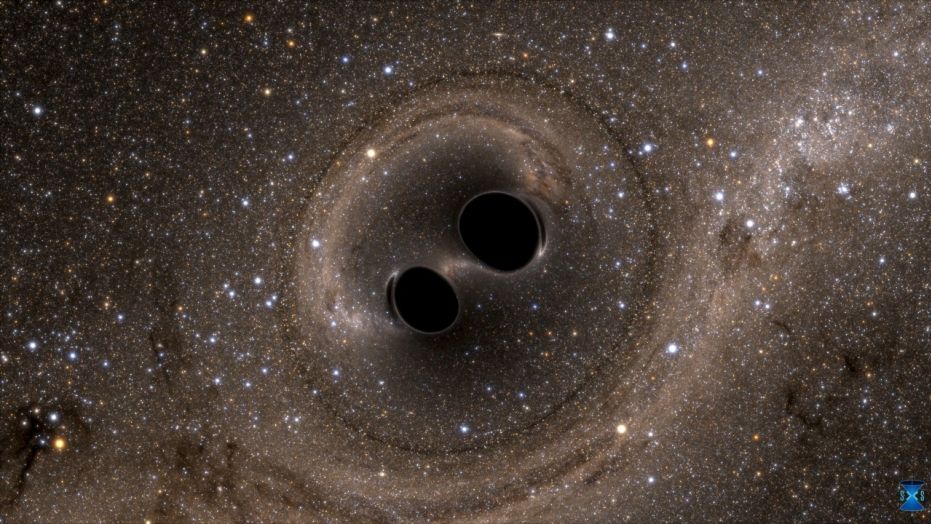Passing through a black hole could open up a whole new future, but it would erase your past

It’s a controversial idea. But an enticing one. A new study has once again tackled the implications of a black hole’s event horizon — the point beyond which not even light can escape its gravitational pull.
This time, mathematicians have been crunching the numbers to determine if an object can cross this point of no return — and travel beyond.
It’s generally thought an even horizon is an impenetrable line in space and time.
Whatever goes over the edge is lost, forever.
Many astrophysicists say what’s inside is impossible to study. The laws of physics break down to a point where they’re simply incomprehensible.
But one international team of researchers have been busily poking holes in this assumption.
Their research, published in the journal Physical Review Letters, looks at a particular type of black hole.
It must be calm. It must be supermassive. It must be electrically charged. It must sit in an expanding and accelerating universe (like our own).
They argue these conditions open up a path enabling someone to pass through to what lies beyond — without being “spaghettified” down to elemental components.
There is a problem, though. Your past would evaporate. And an infinite number of futures would open up for you. All at once.
RIDING THE RAPIDS OF SPACE-TIME
The idea is challenging.
Not least of all because it contradicts Albert Einstein’s famous theory of general relativity.
It’s a theory that has been demonstrated repeatedly during the past century. Even the most recent discovery of gravitational waves conform to its expectations.
General relativity essentially means the laws of physics apply to everyone and everything. Where you’ve been determines where you are going, and vice-versa.
It allows you to calculate something’s past. It enables you to predict its future. But black holes, the researchers argue, are complicated. Space and time get bent. Einstein’s theories break down.
But there is something beyond a black hole’s event horizon, the researchers say. It’s another horizon.
It’s called the Cauchy horizon. It’s a theoretical point where everything under its influence is slowed — infinitely.
Everything the black hole ever encounters hits this horizon at the same time.
Whatever is there will continue to fall towards the black hole’s central singularity, where everything is compressed to an infinitely small state, for all eternity.
The past no longer determines the future. Therefore, no Einstein allowed.
Most physicists believe everything gets annihilated at this point.
But here’s where the new study really kicks in.
It says an enormous, electrically-charged black hole would allow things to pass through this Cauchy horizon and dodge the singularity at its heart.
Because our universe is experiencing accelerated expansion, this counteracts — and cancels out — some of a black hole’s apparently impenetrable properties.
“There are some exact solutions of Einstein’s equations that are perfectly smooth, with no kinks, no tidal forces going to infinity, where everything is perfectly well behaved up to this Cauchy horizon and beyond,” study co-author Peter Hintz says. “After that, all bets are off.”
vote back @ichsann